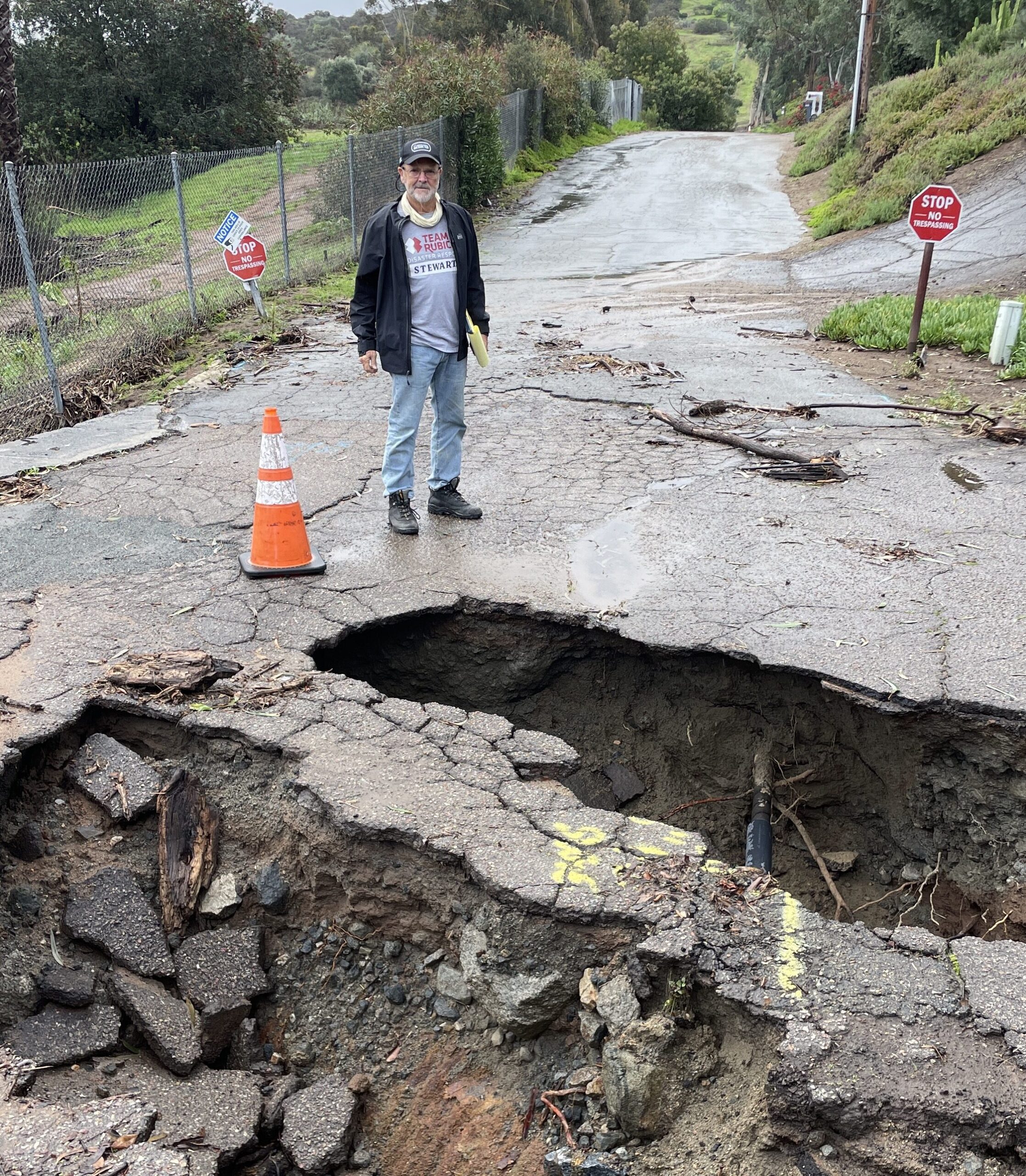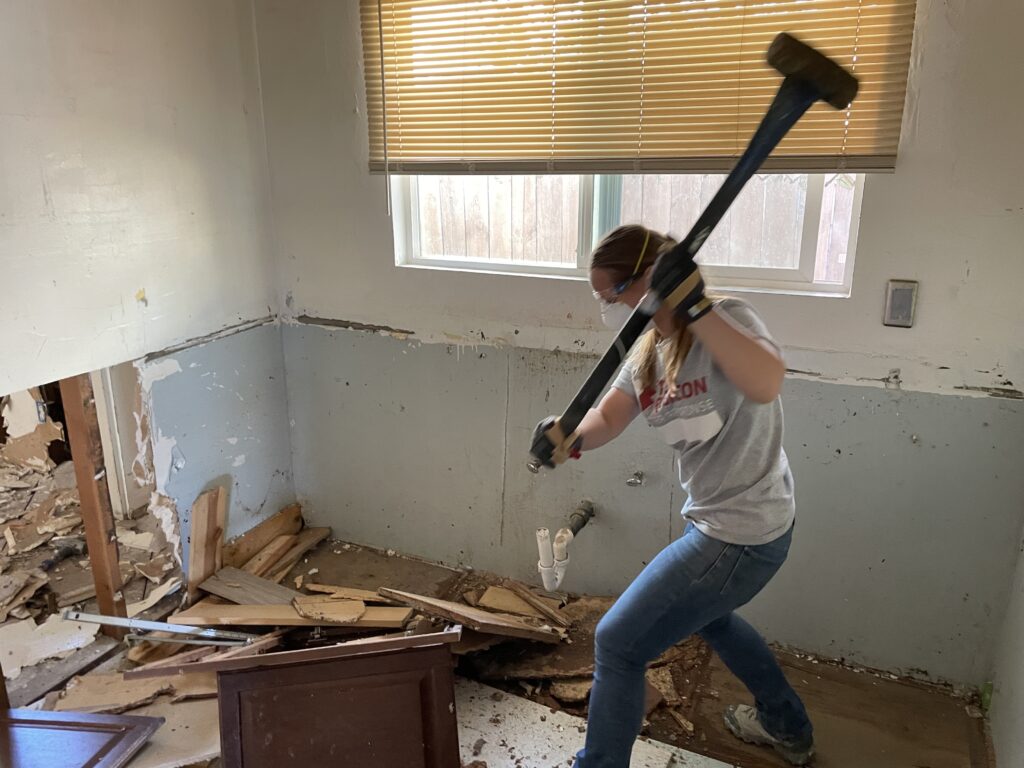Covid’s rejection of those 65-plus had kept me on the shelf for far too long, so when SoCal’s callout to respond to flood damage in San Diego came, I jumped at the chance to sign up for a local Team Rubicon operation. I’d be able to get my grey shirt dirty again, yet still drive home and sleep in my nice, warm bed.
The first day of the operation, I was assigned to a muck-out strike team that was led by a woman and consisted of four female volunteers and one other guy. The site we were assigned included stripping drywall and insulation, hauling wet stuff up some stairs in the rain, piling it all in the gutter, and then again into a dumpster—when it finally showed up. Keeping up with the ladies was this old man’s number one goal.

That morning, I worked like a youngster—which I am not—and by lunch, it was clear my body would not cash any more muck-out checks. So, ops paired me with another Greyshirt to do site assessments for the rest of that day and the next, though in truth, I ended up having to take a little time off to recover from what I had overdone.
When I returned two days later, I expected to be handed a cellphone—aka a field services handheld—and be sent out for more site assessments. Instead, I arrived that morning to find I was now Bravo Strike Team Leader, and we had a couple of very nasty homes to make TR Clean.
Feeling rested and not wanting to put a wrench in the works, I picked up the clipboard and truck keys and went out to find my team. All on strike team Bravo were veterans—I was by far the oldest; a U.S. Coast Guard veteran named Anna was the youngest—and we quickly gelled into a kick-ass unit. And while I could praise each of them, and did, this reflection is about the female volunteers—the TR lady Greyshirts—and we had one of the best.
Greyshirt Anna Trubnikova is what we Army types fondly call a short round—an artillery shell that didn’t get all the way to the target. In her case, it was her stature that made Anna a short round: those into fashion would call her petite. Yet while she may not have reached some height target, she most definitely hit the target in the houses we were assigned. Jackhammering tiles, piling wet drywall, dragging skids full of debris up and down stairs to the dumpster, Anna battled pound-for-pound far more than her share—and always with a smile.
Facing a stone-clad stub wall, I pondered the best way to attack. Up stepped our petite teammate with a long-handled sledge and began the task. Hit and bounce off. Hit again. Words were spoken. Anna swung the sledge high and hit it again, but only small pieces chipped off. Finally, she called on the two biggest men on the team, who delivered several coordinated boots to the top of the wall, breaking it off at the connection, allowing breaker bars to finally drop it to the floor and revealing why the sledge wouldn’t do it: The wall was almost solid concrete.

Getting the downed wall out to the dumpster would be another story, but first, there was a very large kitchen cabinet nearby, which was also waiting to be reduced to pieces. Anna was still fired up and still holding the sledge. The cabinet didn’t survive long.
As Anna demolished the cabinet, the homeowner’s two teenage sons looked on, slack-jawed. “Now, that is the kind of woman you should be looking for,” I whispered to them. They should be so lucky.
Our team made short work of that muck out and two others that day. Taking much of the houses to studs to just above the waterline would allow the homeowners to dry out and restore the homes for their families.
During my Vietnam-era service, we combat branch folks had no interaction with women warriors like those who now grace later generations. So, serving with the likes of Anna was a real bonus for this old infantryman.
From jackhammer to sledgehammer, Anna—or Anna da Hamma, as we call her—and her Greyshirt sisters ROCK!



